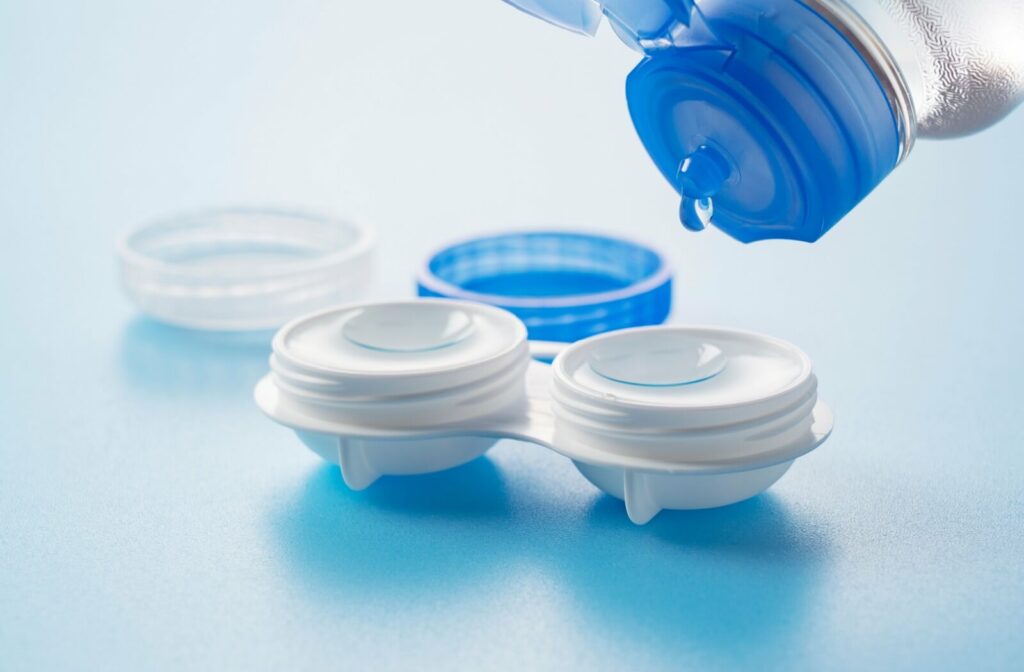If you wear contact lenses, you’ve likely noticed an expiration date on your lenses or their packaging. But what does that date actually mean, and why is it so important? Yes, contact lenses do expire, and understanding why and when to replace them is crucial for maintaining good eye health.
How Long Do Contact Lenses Last?
The lifespan of contact lenses depends on the type and material of the lens. Disposable lenses, which are designed for daily or monthly use, typically last from one day to one month. Reusable Rigid Gas Permeable (RGP) lenses can last up to one year, but it’s essential to follow the specific guidelines provided by your optometrist. Always check the packaging for the expiration date to ensure you’re using lenses within their safe time frame.
Why Do Contact Lenses Expire?
Contact lenses are made from materials that can break down over time. As they degrade, the lenses may become less effective at their job, leading to discomfort and an increased risk of infection. The material can also become more prone to damage, which may compromise the shape of the lens and its ability to retain moisture. Expired lenses can cause dryness, irritation, and blurred vision, which can lead to more serious problems.
Even with proper cleaning, bacteria and fungi can still grow on expired lenses, posing a health risk. That’s why it’s important to discard your lenses when they’re past their expiration date, regardless of how well you’ve cared for them.
Do Contact Lens Solutions Expire?
Just like lenses, contact lens solutions also have an expiration date. Most solutions come with a discard date, which is the date you should dispose of the solution after it has been opened. For preservative-free solutions, it’s recommended to discard them 24 hours after opening. Using expired solutions can also lead to irritation, infection, or other complications.
Risks of Using Expired Contact Lenses
The risks of using expired lenses are significant and should not be ignored. Even though it might seem like a waste to throw away an old pair of lenses, wearing expired lenses can lead to serious eye issues, including:
- Increased risk of eye infections: Bacteria or fungi can grow on old lenses, leading to conditions such as keratitis, an infection of the cornea that can threaten your vision.
- Blurred vision and discomfort: Expired lenses may not fit correctly or retain moisture, which can lead to poor vision quality and discomfort. This is especially concerning for tasks like driving, where clear vision is essential.
- Potential for serious eye damage: In extreme cases, untreated infections or persistent irritation from expired lenses can lead to permanent eye damage or even vision loss.

What Happens If I Accidentally Wear Expired Contact Lenses?
If you accidentally wear expired contact lenses, it’s important to remove them immediately. Stop wearing the lenses, discard them, and contact your optometrist if you experience any discomfort. Symptoms that warrant a visit to your eye doctor include:
- Blurry vision, especially if it comes on suddenly
- Redness or irritation in the eyes
- Pain or discomfort while wearing contact lenses
- Any unusual sensations in or around your eyes
Storage and Care Tips for Contact Lenses
Proper care and storage are essential for maintaining your contact lenses’ effectiveness and prolonging their lifespan. Here are some tips for caring for your lenses:
- Wash your hands: Always wash your hands thoroughly with soap and water before handling your contact lenses. This simple step can help prevent contamination and infections.
- Avoid water contact: Never expose your lenses to water, including tap water, swimming pools, or hot tubs. Water can warp the lenses and introduce harmful germs, like Acanthamoeba, which can lead to serious eye infections.
- Follow storage instructions: Use the recommended contact lens solution to clean and store your lenses. Be sure to replace the solution in your lens case daily, and avoid reusing old solution.
- Replace your lens case regularly: It’s important to replace your lens case every three months to prevent the growth of bacteria and ensure optimal hygiene.
- Adhere to your replacement schedule: Follow the replacement schedule provided by your optometrist and the lens manufacturer. Don’t extend the life of your lenses beyond the recommended timeframe.
Are Contact Lenses Right for You?
While contact lenses offer a convenient, comfortable alternative to glasses, they do require commitment to proper care and maintenance. Wearing contact lenses can help you live without the hassle of glasses, boosting confidence and giving you the freedom to engage in activities like sports without worrying about your eyewear. However, it’s essential to be diligent about cleaning, storing, and replacing them on time.
If you’re considering contact lenses or have questions about the best options for your eyes, your optometrist can guide you through the process and help you choose the right lenses. At Niagara Vision, we are dedicated to helping you achieve optimal eye health with personalized eye care solutions. Book an appointment today to learn more about contact lenses, proper lens care, and how we can help you maintain healthy, comfortable vision.








